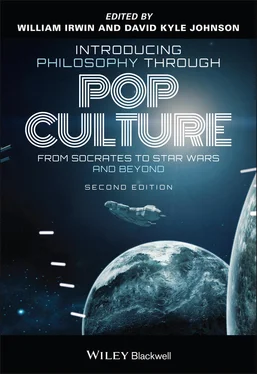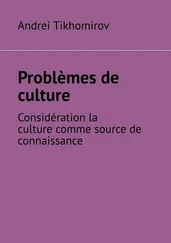Timothy Pickavanceis Associate Professor of Philosophy and Chair of the Talbot Department of Philosophy at Biola University. His philosophical interests are all over the map. But his published work is mostly in metaphysics, and include Metaphysics: The Fundamentals and The Atlas of Reality: A Comprehensive Guide to Metaphysics (both co‐authored with Robert Koons).
Christopher Robichaudis Senior Lecturer in Ethics and Public Policy at the Harvard Kennedy School of Government. He has published many articles in the Philosophy and Pop Culture series, including contributions to Batman and Philosophy , Watchmen and Philosophy , Spider‐Man and Philosophy , Avengers and Philosophy , and X‐Men and Philosophy . He also edited the volumes The Walking Dead and Philosophy and Dungeons & Dragons and Philosophy . Christopher designed an online course for the Smithsonian, Power and Responsibility: Doing Philosophy with Superheroes , and he is currently writing a book on superheroes and democracy for Harvard University Press.
Bradley Richardsis a philosophy lecturer at Ryerson University. His research concerns consciousness, attention, and aesthetics. He also enjoys working in cognitive science and film.
Eric J. Silvermanis Associate Professor of Philosophy at Christopher Newport University in the US. He has more than 20 publications on topics in ethics, philosophy of religion, and medieval philosophy. His publications include two monographs, The Prudence of Love: How Possessing the Virtue of Love Benefits the Lover and The Supremacy of Love: An Agape‐Centered Vision of Aristotelian Virtue Ethics, as well as two edited collections, Paradise Understood: New Philosophical Essays about Heaven and Sexual Ethics in a Secular Age: Is There Still a Virtue of Chastity?
Jason Southworthis an adjunct philosopher who refuses to give the schools he teaches for free advertising in his bios as long as they refuse to pay their workers a living wage or offer them health insurance. He is the co‐editor of Saturday Night Live and Philosophy: Deep Thoughts Through the Decades with Ruth Tallman, and has recently completed work on the 4th edition of Critical Reasoning: A User's Manual with Chris Swoyer, a free open resource textbook.
Grant Sterlingis Professor of Philosophy and General Education Coordinator at Eastern Illinois University. He teaches courses in ethics, law, religion, and the history of philosophy. Sterling has twice served as President of the Illinois Philosophical Association, and is the author of Ethical Intuitionism and Its Critics , as well as several articles and chapters.
Zachary Swansonis a graduate student at The University of Tennessee at Chattanooga, where he studies moral psychology, and other topics such as religion, meaning, well‐being, and aging. He has co‐authored a chapter for one other volume in the Blackwell Philosophy and Pop Culture Series, and is working on several publications for academic journals in psychology and philosophy.
Jerry L. Wallsis Professor of Philosophy and Scholar in Residence at Houston Baptist University. He has authored or edited a number of books and articles, both academic and popular. Among his books is a trilogy on the afterlife, dealing with heaven, hell, and purgatory.
Jonathan L. Wallsis a filmmaker residing in Los Angeles. To date, he has written and directed three feature films. He is the Editor of The Legend of Zelda and Theology , and co‐Editor of Tarantino of Theology .
Mark D. Whiteis chair of the Department of Philosophy at the College of Staten Island/CUNY, where he teaches courses in philosophy, economics, and law. He has edited or co‐edited eight volumes in the Blackwell Philosophy and Pop Culture Series, contributed chapters to many more, and authored books on Batman, Captain America, and Marvel Comics' Civil War .
J. Lenore Wrightis the Director of the Academy for Teaching and Learning (ATL) and Associate Professor of Interdisciplinary Studies & Philosophy at Baylor University. Wright serves as an expert reviewer for the International Journal of Feminist Approaches to Bioethics and a regular reviewer for Feminist Philosophy Quarterly . She received Baylor's Outstanding Professor Award in 2008–2009 for distinctive teaching.
William W. Young IIIis professor of religion and philosophy at Endicott College in Beverly, Massachusetts. He has published essays on baseball, poker, and The Shawshank Redemption . His most recent book is Listening, Religion, and Democracy in Contemporary Boston: God's Ears .
We would like to thank our friends, colleagues, and students who offered feedback and advice in assembling this volume. Courtney Zabresky provided excellent secretarial support. Thanks are also due to our editor Marissa Koors and the reviewers who helped us shape this new edition. The contributing authors were consummate professionals who literally made this book possible. We especially appreciate all the instructors who assigned the first edition and whose continued support has made this second edition a reality. Kyle wishes to thank his wife Lori for supporting him throughout his many projects and Sabrina Traver for her peerless proofreading and formatting skills. Bill wishes to thank his wife Megan and his children Daniel and Kate for making home so happy and philosophy friendly.
The editors and publisher gratefully acknowledge permission to reprint the copyright material in this book.
1 William W. Young III, “Flatulence and Philosophy: A Lot of Hot Air or the Corruption of the Youth?” from Robert Arp (ed.) South Park and Philosophy: You Know, I Learned Something Today (Oxford: Wiley‐Blackwell, 2006), pp. 5–16. Reprinted by permission of Blackwell Publishing Ltd.
2 Robert Arp, “The Chewbacca Defense: A South Park Logic Lesson,” from Robert Arp (ed.) South Park and Philosophy: You Know, I Learned Something Today (Oxford: Wiley‐Blackwell, 2006), pp. 40–53. Reprinted by permission of Blackwell Publishing Ltd.
3 David Kyle Johnson, “Wikiality, Truthiness, and Gut Thinking: Doing Philosophy Colbert‐Style.” No permission required. Written for the first edition.
4 Henry Jacoby, “You Know, I Learned Something Today: Stan Marsh and the Ethics of Belief” from Robert Arp (ed.) South Park and Philosophy: You Know, I Learned Something Today (Oxford: Wiley‐Blackwell, 2006), pp. 57–65. Reprinted by permission of Blackwell Publishing Ltd.
5 Matt Lawrence “Tumbling Down the Rabbit Hole: Knowledge, Reality, and the Pit of Skepticism,” from Matt Lawrence, Like a Splinter in Your Mind: The Philosophy Behind the Matrix Trilogy (Oxford: Wiley‐Blackwell, 2004), pp. 20–31. Reprinted by permission of Blackwell Publishing Ltd.
6 Eric J. Silverman, “Adama's True Lie: Earth and the Problem of Knowledge,” from Jason T. Eberl (ed.) Battlestar Galactica and Philosophy: Knowledge Here Begins Out There (Oxford: Wiley‐Blackwell, 2008), pp. 192–202. Reprinted by permission of Blackwell Publishing Ltd.
7 Ruby Komic, “Wakandan Resources: The Epistemological Reality of Black Panther's Fiction,” from Edwardo Perez and Timothy E. Brown (eds.) Black Panther and Philosophy (Hoboken: Wiley‐Blackwell, forthcoming 2022). Reprinted by permission of John Wiley & Sons, Inc.
8 Dara Fogel, “Life on a Holodeck: What Star Trek Can Teach Us about the True Nature of Reality,” from Kevin S. Decker and Jason T. Eberl (eds.) The Ultimate Star Trek and Philosophy: The Search for Socrates (Oxford: Wiley‐Blackwell, 2016), pp. 275–287. Reprinted by permission of John Wiley & Sons, Inc.
Читать дальше












